Meet the Examiners
In our MayJun issue we have interviewed several examiners from our most prominent syllabi. A common comment from our examiners is that our students are very nervous when they enter the exam room and fear that their little mistakes will cost them marks. Reading the examiners profile to your students out-loud in class will help them understand that their examiners were once, just like them, students of dance. They want the best for students and really enjoy their role of watching them dance.
Our editor’s note for teachers is to consider allowing your students to run their class without your corrections. Try instead during at least 1 class per month to offer them corrections, only at the end of class. The students gain confidence with your trust. The exam room can be eerily quite if this is the first time they get to complete their exercises without corrections.
Below we have included an excerpt from each examiner interview, please see your latest issue of dancetrain MayJun on sale now for full interviews (which also has pics of some of our examiners as students).
Royal Academy of Dance Examiner Rachael McGowan
 Can you talk us through the journey of how you became an examiner of dance?
Can you talk us through the journey of how you became an examiner of dance?
I’m very much an RAD bunhead. I studied on the BA (Hons) in Ballet Education and Licentiate programme at RAD headquarters in London, where I also worked as an assistant in the Dance school in the evenings and chaperoned the summer courses during the holidays. Prior to this my only experience of ballet lessons had been my RAD classes. Since then I have explored and enjoyed the various other styles that ballet has to offer but RAD is my home. Having taught in a number of countries, upon settling in Melbourne I joined the RAD Regional Panel. After a rigorous training course I joined the Panel of Examiners in May 2018.
I first entertained the idea of becoming an examiner after being taught by Miss June Mitchell, a revered examiner based in London. I was actually about to give up ballet altogether when I met Miss Mitchell but she really did bring me back to life. Some of my best teachers have been examiners so I thought there may be something in this to explore – being involved with exams from the other side would be a good way for me to help my own students.
Being an examiner is very special. The dancers and teachers work so hard together yet we are the only ones who see the final performance – it is such a special moment and we are in a very privileged position.
Many students like to talk about whether an examiner marks ‘hard’ or ‘easy’ as students wait for their results. Do you there is any truth to these wonderings? What would you prefer students focus on when they receive their results?
It’s incredibly hard to be objective about your own dancing as so much is invested. With time and distance one may have some clarity but really it’s an impossible ask. You have to put your trust in your teachers and the examiner.
As an examiner I like to think I mark fairly and for my own students I look for fair results.
The thing to focus on when the results arrive is this is the culmination of all that’s been achieved in the previous months/ years. I approach the exam as a celebration of all the hard work and personal achievement and the result is the victorious ‘I did it’ moment.
Some students seem to go into an exam thinking that the examiner is going to try and trick them, they forget that the examiner really just wants the dancer to do their best and enjoy the experience. Do you have any advice for the students along these lines?
It always makes me chuckle when candidates are leaving the exam space and whisper to their fellow dancers about to enter “she’s really nice” or “she’s really helpful”. I promise we are just regular humans.
It’s natural to have some apprehension towards an exam, this isn’t something to be worried about and an RAD exam is not the first or last situation where you will be put under pressure. I always say to dancers, no examiner has got to be sitting in the chair, watching you dance without having been through the same experience you are in now. Whether it’s taking the same exams during our own RAD training, end of year vocational school assessments, company auditions or even examiner training. We understand exactly the emotions and worries and ‘YES!’ moments that take place in the exam space. Please know that we are on your side; we are rooting for you!
Royal Academy of Dance Examiner Samantha Leeman
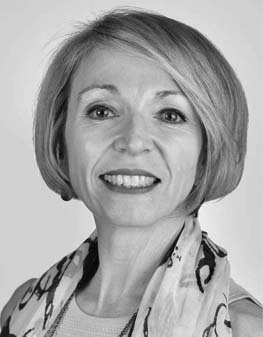 “I love the moment when the bell rings to welcome the next group of candidates into the exam studio; the sense of anticipation from both the students and the examiner.”
“I love the moment when the bell rings to welcome the next group of candidates into the exam studio; the sense of anticipation from both the students and the examiner.”
Small mistakes don’t have an impact on the mark as we are not marking the students’ knowledge of the work (other than in Pre-Primary in Dance and Solo Performance Awards). We are assessing how the students dance, how they interpret and perform the work, and how they respond to the music.
One of the first things that nerves can affect is your breathing and that can flow on to impact your technique and performance so take the time to breathe properly and deeply to release the tension.
I would particularly encourage students to work with their teachers on developing a natural, honest and meaningful interpretation of each exercise and dance. Rather than having a ‘set’ smile or grin throughout the exam students could think about and convey to their audience their individual response to the music and the movements they are creating.
Cecchetti Ballet Australia Examiner Carole Hall O.A.M
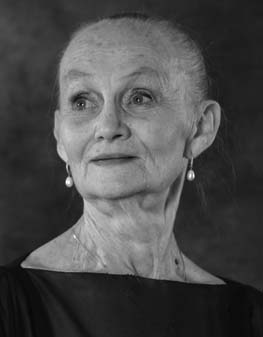
“I believe it is my job as the examiner to make the students feel comfortable and to make the experience an enjoyable one.”
I believe there are circumstances when a Grade can be skipped e.g. when they have had to miss a significant amount of the year through the family moving away, when they have had an injury which has had an impact on their training or when there has been an unusual growth spurt resulting in a lack of strength. However normally I believe our syllabi follow the development of the classical technique so ideally all exams should be followed.
The students need to know that the examiners are there to help them and not to frighten them and as long as they know their work and do it to the best of their ability then there is no need to be frightened.
COMDANCE Examiner Cindy Watson
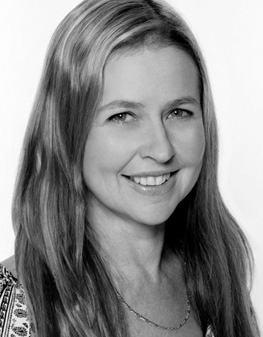
How would you like to see students react to their results especially if they were not what they expected?
Students should view their results as self-learning, an opportunity to continue to work hard and to further strive to better themselves. They progress forward even if the results are not what they expected. I encourage my students to use their results to increase their awareness of where they are at in this moment in time, not as a judgement.
Can you share any humorous stories from past examinations?
I once had a young candidate who came in with her jazz shoes on and tap shoes in her hand. She placed her tap shoes on the side and did her jazz dance. Then when it was time to change shoes she put her tap shoes on the wrong feet. I thought this must be hurting her feet and asked her if she wanted to change them. She said, “No, they are on the right feet, because mum labelled them”. She had the sock and shoe labelled so they would match and go on the right feet. I then asked her if it was uncomfortable and she said, “Yes” so we decided to change the shoes, just to see if it was better, which it was, and she did her dance beautifully. Later on her teacher came in and said that her mum had put the labelled socks on the wrong foot and that’s how the shoes ended up on the wrong feet. Mum was more nervous than the Candidate.
COMDANCE Examiner Marilyn Fisher
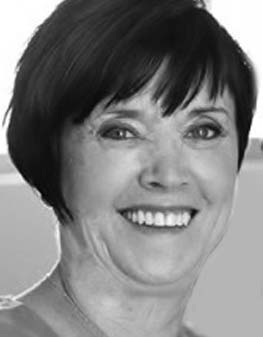 As an examiner it is our job to encourage the students to enjoy and feel safe in the exam environment. It is also our job to build confidence and motivate their desire to return to an exam room.
As an examiner it is our job to encourage the students to enjoy and feel safe in the exam environment. It is also our job to build confidence and motivate their desire to return to an exam room.
My Philosophy is the grades levels give the students the knowledge and especially the skill to go through each grade. It is important for their development, and understanding of each grade that they are achieving.
If students enter the exam well prepared this instills confidence and will also carry though to their life journey.
Australian Institute of Classical Dance Borovansky Syllabi Examiner Christine Strickland Terenzini AICD, ARAD, DES
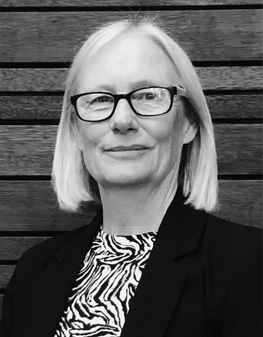 How would you like to see students’ react to their results especially if they were not what was expected?
How would you like to see students’ react to their results especially if they were not what was expected?
Examiners come from a very understanding place as all have been through the same emotions that you will experience going for your exams. When you get your results, focus on the things you may be able to work on to improve your work, after all it’s going to make you even better at your craft. The marks are a bonus. Examiners are there to give you an independent input into you work.
Can you share any humorous stories from past examinations?
I enjoy making the exam process as enjoyable as possible and love engaging with the primary students, mentioning how lovely they look as they introduce themselves. Often they love to tell me a few too many stories as their teachers look on nervously wondering what might next be said. I gently refer them back to the exam at task.
In a results orientated climate, what would you like all dance teachers to keep in mind when preparing their students for exam day?
Teachers work hard preparing students for their exams and it is a lot of pressure whether it be small or large number of students. I would suggest that after all the hard work has been done leading up to the exams time is spent calming the students so they can perform at their best and enjoy the experience. The exam is time to shine.
Australian Institute of Classical Dance Borovansky Syllabi Examiner Barbie Komazec
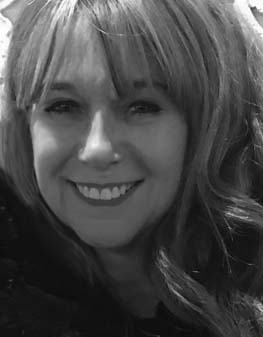
“Parents and students in this competitive climate seem to be in such a hurry to progress quickly. This is not an ideal way of training. Slow and steady is the key. Learning to dance should not be a race.”
Mistakes quite often occur during examinations due to nerves, anxiety etc. As long as the student carries on, puts the mistake behind them and continues in a confident manner, it should not affect their overall mark.
I don’t think there is any value in skipping grades. Levels and grades are there for a reason – for students to attain the required capability of technique for that level or grade. The students’ development is paramount in the building blocks of a slow and steady training in order to acquire certain steps, movements, coordination, strength, control and the ability to mature within the grade or level. I tell all my students and parents remember, “It’s the journey not the destination”.
Laurel Martyn Dance Teaching System (LMDS) Senior Assessor Jane Andrewartha
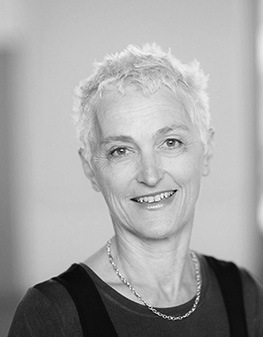
What do you enjoy most about assessing students?
We include improvisation in our assessments and the students perform two short pieces with completely different qualities that allow the students to express themselves as individuals. The improvisations are guided by the teacher, as little or as much as necessary. When the teachers understand and enjoy teaching improvisation, it is a joy to watch their students, so that can be a highlight. We also encourage LMDS students to be individuals, so the work isn’t regimented and there is freedom for each student to express themselves. This too is a joy for me to witness.
Advice for students on how to regroup after a mistake?
Mistakes are an opportunity to learn. Our Assessors do not look at mistakes as such, but at the performance as a whole. You can make mistakes and still be excellent at what you are doing, and no performance is ever perfect. Because we allow for that individuality we don’t expect perfection, and if the head is placed differently it is not wrong, but rather a form of individual expression. To mark a student down because of the wrong head alignment or similar detail is not what defines dancing; that is, to be expressive, show your love of dance, use the space, work with others – that is dance.
One of my favourite quotes from Laurel highlights this,
“Technique is an important aspect of specific styles of dance, but most students are not professional material, or even want to be, and will not achieve the highest standard of technique. All dance students however can achieve the highest standard of quality.”
EDTA Examiner Leonie Stone
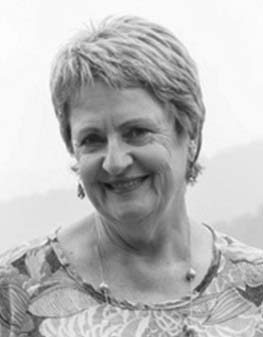
“Students today have a great deal to contend with in their lives. Because of this I don’t think students fully appreciate the necessity of practice outside the studio. They would benefit from taking regular time to practice and research their training.”
A student’s work is judged overall and it is the technical standard that is first assessed. It is more important for a student to pick up their performance if they make a mistake and not to let that worry them. The ability to ignore a mistake if one is made is very important to the overall presentation of a student’s work.
Students should be encouraged to work at a level that challenges and develops them. There is no point for a student to be held back in their training, which may result in them losing their enthusiasm and passion for their performance. However, it is also important for a teacher not to push a student into areas beyond their overall ability, which could hinder them in higher grades of work. Each student should be judged individually on their potential and capabilities and placed in a grade that will support their growth and maintain their joy in dance.
A student must be reminded that they are fully prepared and ready to take this exam; confidence in their ability will alleviate feelings of nervousness and therefore a teacher has a strong responsibility in ensuring that the student is fully prepared and polished in their grade work.

